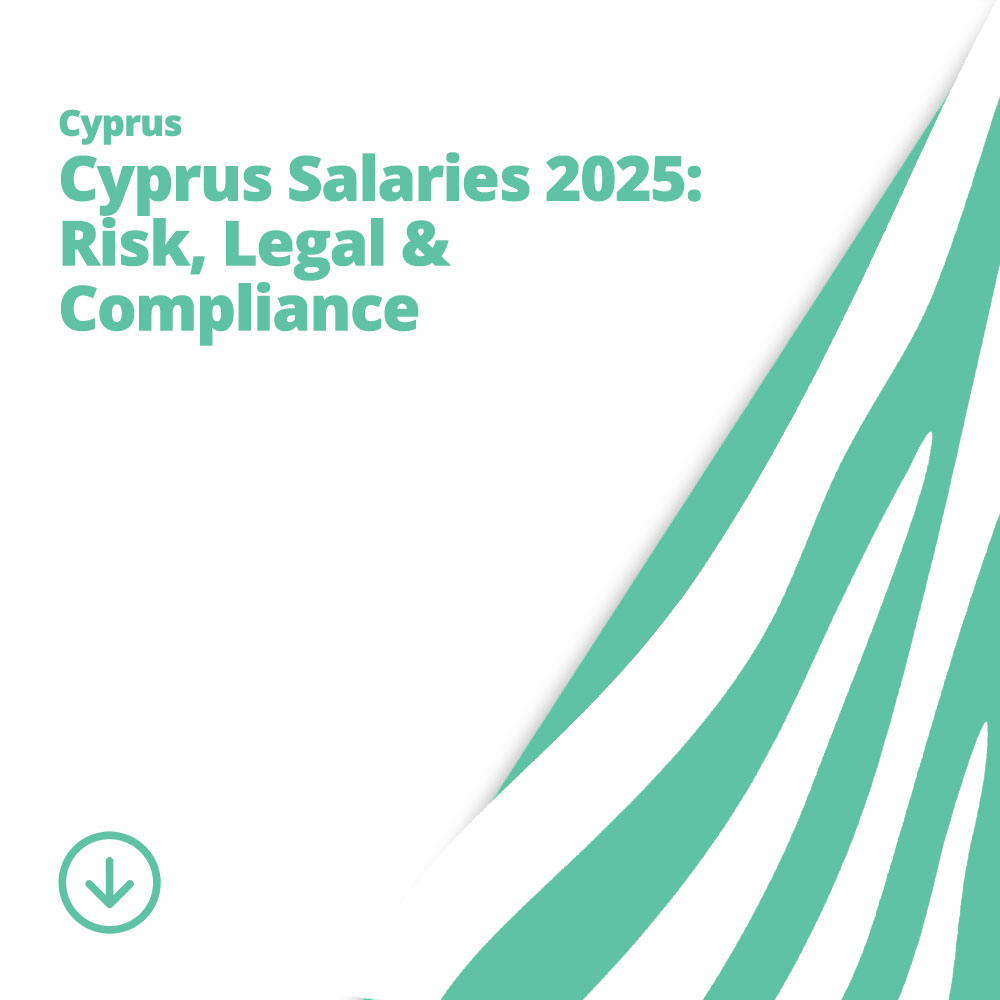The fintech industry’s growth is on an upward trajectory, with a market evaluation surging from $105 billion in 2021 to $132 billion in 2022, and projected to reach $165 billion by the end of 2023, as per the Market Data Forecast report. This expansion has led to an increased demand for skilled professionals in the fintech sector.
With over 300,000 people employed by fintech companies worldwide at the end of 2021, the industry’s significance in the global job market is evident. Europe, with over 40,000 fintech companies, has become a highly competitive fintech centre.
Despite the industry’s rapid progress, fintech companies face a challenge in finding suitable fintech talent due to the relative infancy of the technology and the industry itself.
Cyprus: An Attractive Fintech Destination
Cyprus recently emerged as a favored destination for fintech companies and their headquarters. The Cyprus government offers enticing incentives to attract foreign investment, headquartering, talent, and third country nationals, providing access to a well-educated, highly skilled, multilingual workforce, including local/EU and international talent pools. Cyprus has tailored policies to support companies, offering tax incentives, R&D funding, a favorable corporate & income tax regime, and an attractive IP regime as low as 2.5%. Additionally, Cyprus provides EMIs licensing & passporting rights, and being a well-established European Financial Centre, it is regulated by CySEC. The legal system aligns with UK Common Law, and the country offers an enviable lifestyle in a safe, clean, and healthy environment with a low cost of doing business.
Furthermore, Cyprus‘ geostrategic location provides market access to 500M EU consumers and close proximity to the MENA region.
For fintech firms seeking to establish an overseas operation, Cyprus offers a unique advantage. The country’s policies create a flourishing locale that attracts skilled workers, making it an appealing option for fintech company headquarters. With a proven track record of supporting foreign companies, Cyprus provides the necessary resources and support, making it a compelling choice for fintech firms seeking talent and a favorable business environment.
As the global fintech industry continues to expand, competition for skilled professionals remains intense. Cyprus presents an ideal solution for fintech firms aiming to strengthen and expand their workforce, reduce costs, and grow their business.
Attracting Top Talent in the Fintech Sector:
A Challenging Task
75% of fintech executives identify talent acquisition and retention as their top challenge, highlighting the competitive nature of the fintech industry. (Source: PwC)
Successful fintech recruitment demands a strategic approach with a significant dedication of resources and experience in the field, which is where we, the Emerald Zebra recruitment team, add value. Based in Limassol, the largest fintech centre in Cyprus, and with significant recruitment experience, the Emerald Zebra team is the perfect partner for fintech companies looking to hire exceptional talent and jobseekers seeking their next career opportunity.
The fintech industry encompasses key sectors such as Payments, OnlineTrading, Challenger banks, WealthTech, Lending, Buy Now Pay Later, Insurtech, Infrastructure, Cryptocurrency, and Blockchain.
There are four broad job categories: Engineering, IT & Operations, Data Science and Blockchain.
Engineering positions include Front End Engineer, Back End Engineer, Full Stack Engineer, Platform Engineer, Machine Learning Engineer, Solutions Engineer, Data Engineer, and Security Engineer.
Skills required for Engineering positions involve JavaScript, Python, SQL, C++, C#, HTML/CSS, Ruby, Perl, Bash/Shell/Powershell, PHP, Swift, TypeScript, Scala, VBA, R, Objective-C, Kotlin, and Go.
IT & Operations
IT & Operations roles encompass day-to-day operations management, including addressing user responses and handling system backups. Positions in this category include Consumer Operations, Fraud Operations, Business Operations, and Operational Risk.
The role of Big Data plays a vital role in fintech’s growth.
Data Science positions include Data Analyst, Data Engineer, Data Quality Analyst, Big Data Engineer, Data Scientist, Analytics Manager, Data Automation Developer, Business Intelligence Analyst, and Data Infrastructure Analyst.
Data Scientists require a solid understanding of data modeling, relational databases, statistical analysis, and strong analytical skills, including SQL, R, and Tableau. Knowledge of automated/AI-modeled decision-making processes and data cloud tools like AWS, Azure, and GCP is highly valued.
Blockchain Technology
Blockchain technology is an emerging area in fintech, with the global market valued at $5 billion in 2021 and projected to reach $34 billion by 2026.
In-demand positions in this field include Blockchain Developers, Blockchain Web Designer, Blockchain Quality Engineer, and Blockchain UX Designer. Proficiency in Data Structure, web development, and programming languages like C, C++, JavaScript, and Python is essential.
Shortage of Software Engineers
As the fintech industry continues to expand, there remains a shortage of top software engineers, making Python, Scala, Java, C++, JavaScript, and Ruby the most in-demand programming languages in 2023. The modern fintech industry heavily relies on cloud computing, artificial intelligence, and blockchain, making candidates with relevant skills highly sought-after.
Cybersecurity
Cybersecurity is a major concern for fintech companies, as they are 300 times more likely to be hit by ransomware and fraud. The average cost of a cybersecurity breach in fintech was close to $6 million worldwide in 2022. The scarcity of cybersecurity specialists makes it challenging for companies to strengthen their cybersecurity teams, creating demand and supply issues. Extensive industry knowledge, including understanding regulatory requirements, is also necessary.
Emerald Zebra: Attracting and Retaining Fintech Talent
Attracting and retaining top talent in the fintech sector is a challenging task. Validating candidate expertise is a common and complex challenge. Remuneration levels play a crucial role in attracting the best candidates. Top fintech talents often have high salary expectations and seek various perks and benefits, such as provident fund, free lunches, gym memberships, private health insurance, performance bonuses, flexible or remote working.
A Strong Employer Brand is Crucial for Attracting and Retaining Top Fintech Talent
Candidates are drawn to the innovative nature of the fintech sector, making it essential for companies to showcase their unique selling points and compelling opportunities.
A strong employer brand is a powerful magnet that attracts top talent. To become a talent magnet in the fintech space, companies must emphasize their unique culture, values, and employee benefits. Crafting an employer brand that resonates with potential candidates can make a significant difference in attracting skilled individuals.
Transparency and authenticity are key aspects of a strong employer brand. Sharing success stories, employee testimonials, and the company’s vision can create an emotional connection with candidates and encourage them to envision a fulfilling career journey within the company.
Create a More Engaged Workforce
Engaging the workforce is critical for talent retention and productivity. In the competitive fintech sector, it is essential to keep employees motivated and committed. Innovative strategies such as flexible work arrangements, skill development programs, and personalised career paths can create a sense of belonging and purpose among employees.
Embracing cutting-edge technology within the workplace
This can enhance efficiency and streamline workflows, leading to a more engaged and empowered workforce. Emphasizing continuous learning and offering opportunities for professional growth can also boost employee satisfaction and loyalty.
Beyond attracting talent, retaining top professionals is equally crucial
Employees seek increased salaries, flexible work arrangements, and opportunities for career advancement. Employers respond by offering educational development opportunities, flexible office hours, and well-being perks like gyms and medical insurance. Building an inclusive workforce, providing mentorship programs, and embracing remote work further influence talent retention strategies. Employee engagement and a focus on career advancement opportunities are vital for talent retention.
Remote Hiring
Remote hiring is a great solution to address recruitment challenges. Emerald Zebra advises hiring from locations with proven expertise in the niche and embracing remote hiring to tap into diverse talent pools to bridge the gaps in talent acquisition. Regions known for their fintech expertise, where talent has been developed in established clusters offering exposure to innovative technologies, are key targets.
With an extensive network built through years of experience and success and a targeted reach to established fintech clusters, we enable swift and effective job placements with candidates located in Limassol, Nicosia, Paphos, and Larnaca in Cyprus, Greece, and other European countries. We’ve also become a global recruitment force, fueling the Cyprus brain gain by attracting people relocating to Cyprus as well as Cypriots from overseas.
Reputation as Recruiters of Choice
Emerald Zebra stands as a leading fintech recruitment agency in Cyprus, helping fintech companies become talent magnets in the industry.
What truly sets us apart is the exceptional team behind Emerald Zebra. With a wealth of experience and knowledge in hiring across the fintech sector, our team navigates talent acquisition with ease.
FAQ:
Fintech, short for financial technology, operates in the financial services sector. It encompasses a wide range of innovative technologies and companies that aim to improve and streamline financial services and processes using technology solutions.
Fintech encompasses a broad spectrum of services and technologies. Some common examples of fintech include:
Payment Processing: Companies like PayPal, Stripe, Payabl, facilitate online and mobile payments.
Digital Banking: Online banks like Revolut offer digital-only banking services.
Peer-to-Peer Lending: Platforms connect borrowers with individual investors.
Robo-Advisors: provide automated investment management services.
Cryptocurrency: Platforms like Coinbase and Binance enable buying, selling, and trading of cryptocurrencies.
Insurtech: digital solutions for the insurance industry.
Blockchain and Smart Contracts: Technologies like Ethereum enable secure and automated contract execution.
Regtech: Solutions assist with regulatory compliance and risk management.
Personal Finance Apps: help users manage their finances.
Crowdfunding: Platforms allow individuals to fund projects and startups.
Fintech is broadly categorized into four key areas, often referred to as "The Four Pillars of Fintech":
Payments and Transfers: This includes digital payment solutions, mobile wallets, money transfer services, and contactless payments, making transactions more convenient and efficient.
Lending and Financing: Fintech companies in this category offer peer-to-peer lending, online lending, and alternative lending models to provide access to loans and financing for individuals and businesses.
Wealth Management and Investment: Robo-advisors, online brokerage platforms, and automated investment tools help individuals manage and invest their money more effectively.
Insurance Technology (Insurtech): Insurtech startups leverage technology to streamline insurance processes, enhance underwriting, and improve customer experiences in the insurance sector.
These categories represent the core areas of innovation within the fintech industry, with many companies operating at the intersection of these pillars.



